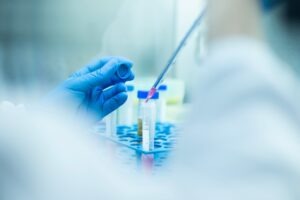Celltrion has entered into a partnership with iProgen Biotech, a pre-clinical stage Canadian biotechnology company, for the development of a series of antibody-drug conjugates against HER21 and CD20 and other validated antibody targets.

Image: Celltrion, iProgen Biotech to co-develop up to four antibody-drug conjugates. Photo: courtesy of PublicDomainPictures/Pixabay.
Subscribe to our email newsletter
Under the terms of the partnership, South Korea-based Celltrion will undertake manufacturing and supply of four recombinant antibodies to iProgen.
Among the four antibodies, two will be targeting the human epidermal growth factor receptor type 2 (HER2) and the CD20 proteins, which will be selected by Celltrion, while the two additional targets will be selected by the Canadian company.
The Korean biopharma company will be responsible for supporting the chemistry, manufacturing, and control (CMC) activities for the investigational new drug (IND) application and the phase 1 clinical trial of the ADCs.
On the other hand, iProgen will hold the phase 1 trial using the drug candidates, and after its completion, the Korean company will be entitled for first negotiation on them for global in-licensing.
The antibodies will use iProgen’s delivery technology, called Antibody Delivery Enhancing Domain (ADED), which is expected to boost anti-tumor efficacy by improving the drug delivery and internalization to cancer cells.
According to Celltrion, the ADED technology is applied to anti-HER2 ADCs for the potential treatment of breast cancer in patients having high levels of HER2 expression more effectively and also those with low levels who do not have any approved targeted therapies.
Over-expression of HER2 has been proven to play a role in the development and progression of certain aggressive forms of breast cancer. CD20, on the other hand, is an activated-glycosylated phosphoprotein, which is expressed on the surface of all B-cells.
Increase in concentration of CD20 is associated with B-cell lymphomas, B-cell chronic lymphocytic leukemia, hairy cell leukemia and melanoma cancer stem cells.
Apart from HER2, other tumor antigens may be targeted therapeutically by ADCs that embody the drug delivery technology, said the Korean company.
A Celltrion representative said: “Celltrion has been searching for novel technologies that could expand the use of existing antibody therapeutics and produce biobetters and next-generation biotherapeutics, in order to bolster its pipeline outside biosimilars and small molecules.
“We will keep on enriching our pipeline to include a panel of oncology drugs, as part of the effort to improve patients’ lives worldwide.”
Headquartered in Incheon, Celltrion is engaged in developing and manufacturing biosimilar drugs. Last December, the company along with Teva Pharmaceutical Industries was given approval from the US Food and Drug Administration (FDA) for their breast cancer drug Herzuma (trastuzumab-pkrb), which is a biosimilar to Roche’s Herceptin.
 Advertise With UsAdvertise on our extensive network of industry websites and newsletters.
Advertise With UsAdvertise on our extensive network of industry websites and newsletters.
 Get the PBR newsletterSign up to our free email to get all the latest PBR
news.
Get the PBR newsletterSign up to our free email to get all the latest PBR
news.

